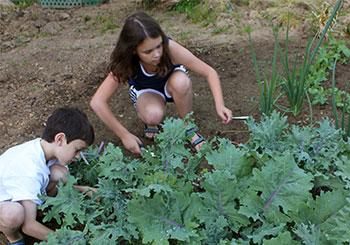How to build mental resilience with your fork

One thing that is certain in life is stress. We all must manage deadlines, family requirements and the additional stressors that life throws us on a daily basis. Your brain is the main organ that deals with stress and is your partner in managing not only the daily stressors, but also the curve balls may be thrown your way. Keeping your brain healthy and nourished is just as important to overall well-being as keeping your body fit and strong. Believe it or not, you can start protecting your brain with your next bite. Your fork can be your ally in defeating stress.
Few Americans know extreme stress like our military community. This is why eating in such a way that promotes brain health and assists with protecting against stressors is even more necessary for our service members and their families. Eating to make the brain more resilient is particularly important. Managing stress and keeping yourself mentally well and resilient are nearly impossible without proper nourishment of your brain. This makes your fork and the right foods your most potent weapons in staying well.
Today, the fields of brain health and nutrition are converging. Consistently, studies have shown that a person's dietary pattern correlates very highly with the risk poor well-being and chronic disease. Yet, most Americans miss some of the most essential nutrients for brain health. For examples, sixty-eight percent of Americans don't eat enough magnesium, a mineral that helps relax the nervous system, 96 percent miss the mark for vitamin E, which protects your brain's specialized fats, and 98 percent likely do not eat the most important nutrient for brain health, the long-chained omega-3 fats. Put simply, we are overfed but undernourished and missing out on the most critical tools for not only physical health, but also mental health. Diets that consist mainly of plants and whole foods and limit processed foods appear to offer a protective effect.
There is a key set of nutrients critical to your brain health and function. These core foods should be the foundation of your diet. At the top of the list are nutrients such as the long-chain omega-3 fatty acids that build brain cells. You find these special fats in seafood like wild salmon, mussels, and trout. Another critical element of mental resilience is vitamin B-12, may become deficient as we age. It helps makes neurotransmitters that are key to mood and memory and top foods for vitamin B12 in clams, yogurt, eggs, and most meat. Another is the mineral Magnesium which promotes the growth of new neurons and healthy connections among brain cells. A deficiency in magnesium can lead to depression, anxiety, symptoms of ADHD, insomnia and fatigue. Get more by eating almonds, leafy greens, and beans. Add zinc, vitamin E, dietary fiber, and folate to your intake and you are on your way to a better nourished brain.
Eating to beat stress starts with nutrient dense foods. My team and I identified the key nutrients for brain health and then used the USDA nutrient database to identify foods that are packed with the highest nutrient concentration of these for the fewest calories. We call it the Brain Food Scale.
According to the Brain Food Scale, the best brain foods are mostly plant-based, but seafood, wild game and even some organ meats make the list.
- Leafy greens such as kale, spinach, and collard greens
- Bivalves such as oysters, clams and mussels
- Bell peppers such as red, green and orange
- Cruciferous vegetables such as cauliflower, broccoli and cabbage
- Berries such as strawberries, raspberries and blueberries
- Nuts such as pecans, walnuts, almonds and cashews
- Fish such as salmon, anchovies, trout, and mackerel
- Game and wild meat such as bison, elk and duck as well as grassfed beef
Each and every day I counsel my patients on their mental wellness. We talk about the challenges they face, but we also talk about the food they consume. Patient after patient that has adopted a brain food lifestyle has reaped the rewards of improved mental health further validating that there is powerful medicine at the end of your fork. And I hope after reading this article, your next bite will feed your brain and make you more resilient.
For more information and recipes to promote brain health, visit www.drewramseymd.com.
(About the author: Dr. Drew Ramsey is a physician, author, and farmer. He is an assistant clinical professor of psychiatry at Columbia University and author of Eat Complete, 50 Shades of Kale, and The Happiness Diet. He lives in New York City with his family. Learn more at www.drewramseymd.com.)
